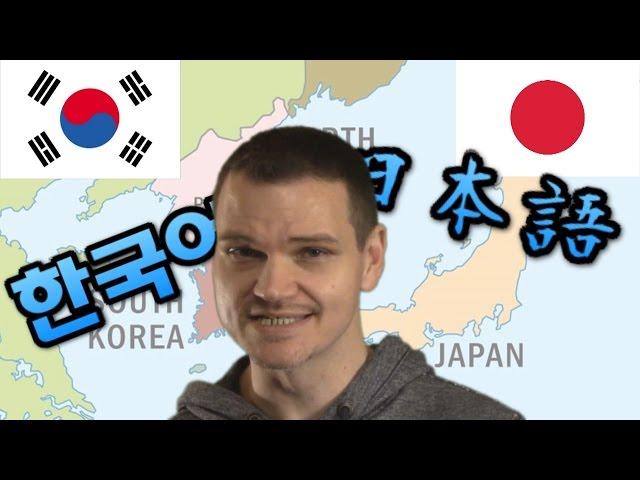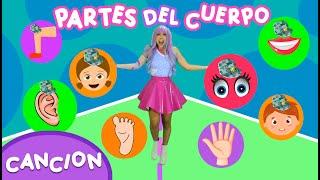Комментарии:

K-Pop language vs Anime language
Ответить
i love korea because my mother country
Ответить
Many countries have similiarities with close countries in language like korea and japan. Such as india, thai, myanmar and europe languages, of course africa also.
Ответить
日本人からすると同じ意味で同じ発音の言葉がいっぱいあるし、文法も同じだから覚えやすいです
Ответить
japan is slave of korea
Ответить
This is because of the Japanese domination of Korea, from 1910 to 1945. During that time, Japan developed the Korean language.
Ответить
도래인이 수백년동안 넘어가서 일본고대문명을 시작시킨거니까 당연히 어순이 같지. 세월이 지나서 단어들이 바뀐것뿐.
그냥 공식적 어순만 같은게 아니라 관용적 어구의 구조까지 모두 같은걸 보면 그냥 같은 언어의 뿌리라 보면 된다. 고대한반도어에서 갈라진 언어인거지
아무 문장이나 구어체로 지껄인다음 일본어로 그대로 단어만 바꿔서 실제 일본에서 쓰는 말인지 확인해봐라. 거의 100%다.
예를 들어 "오늘 시험있는 날이야?" 를 구어체로 "오늘 시험이야?" 라는 비문법적 구어체로 말한걸 일본어로 그대로 바꿔봐라. 일본어로도 그냥 "오늘 시험이야?" 라는 구어체로 동일하게 쓰는걸 알수 있다.

日本語を話す韓国人は沢山いるが、韓国語を話す日本人は少ない
Ответить
I feel like Japanese and Korean did not originate from the same language. I think that their similarities are a case of convergent evolution through consistent (often violent) contact between the cultures. I feel like they would have more non-sinitic cognates with each other if they shared mutual origins. As it is, most natively Korean and Japanese words seem unrelated.
I have heard that Japonic speakers migrated from the Korean peninsula to Honshu before the Koreanic speakers migrated south and became the dominant group in the area. The Dragon Historian has some good videos that show multiple different versions of how it might have played out based different leading theories.

I was studying Chinese in China after learning Japanese. I heard two Korean girls in my class speaking Korean say samgag gwangye, which sounded like sankaku kankei (love triangle) in Japanese. So I asked them in Chinese who was in the love triangle (sānjiǎo guānxì) and they were shocked that I had caught it from the Korean. I don't think they ever actually told me who they were talking about.
Ответить
Completely unrelated. Korean is a tungusic austronesian hybrid language that has dravidian phonology. There is ZERO shared native vocabulary between Korean and Japanese.
Ответить
From my understanding Japanese and Korean share some influences but developed from different language families.
Japanese and Korean both being language isolates. But with historical related langues which are now extinct.

Current Korean language was reconstructed by Yukichi Fukuzawa of Japanese, and implemented.
70 % of Current Chinese language was imported from Japanese language.

Since Baekje, one of three ancient countries in Korea back in 1 ~ 7th century in Korea, transferred advanced culture, characters etc. to Japan and many of Baekje people moved to Japan as rulers, most of modern Japanese language evolved from ancient Baekje language. That's why so many Japanese pronunciation of Chinese characters are still similar. But in terms of degree of advancement of language, Japanese is way ancient and underdeveloped one because there are only 5 vowel (a, e, i, o, u) sounds which make Japanese to learn other advanced languages so difficult.
In Korea, since Shilla unified three ancient countries, modern Korean evolved from ancient Shilla language which of course was very similar to Baekje's.

우리 고구려 백제인들이 넘어 갔으니까 비슷하지.
Ответить
저는 학생 입니다 also works for I am a student 😊
Ответить
I'm an intermediate learner of Korean but I watch anime quite often and I find it fascinating how I can catch some words I know in Korean. Some words sound exactly the same, kibun in Japanese is 기분 gibun in Korean. Some words sound quite similar, like I was able to pick up the word kanoosei, which is the same as 가능성 ganeungseong in Korean. I feel like there's a bit of a pattern where Japanese has a long vowel in places where Korean would have a ng at the end. Another word pair I can think of is gakusei in Japanese and 학생 hakseng in Korean, in the second part of these words Japanese has a long vowel and Korean has a ng sound. I know almost no Japanese and I'm only intermediate in Korean, but I can see how knowing one of them would make learning the other one much easier.
Ответить
As a Korean, you explained so well.😊 And your Korean pronunciation is good enough. Actually, I was kind of surprised at your pronunciation. Seriously, That was great.
Ответить
Korean, Japanese, Mongolian, Turkish, and Central Asian languages have similar grammars...and Chinese, Vietnamese, Thai, and Cambodian languages have similar grammars.
It will be helpful to refer to it when studying foreign languages.

Not similar💢💢💢
Ответить
Japanese is basically a language that branched off from ancient Korean. The word order and basic grammar are the same. And although the two languages appear different on the surface (even more so because Japanese has no final consonants), if you analyze the current Japanese words in detail, most of them have Korean roots (this is agreed upon by conscientious Japanese linguists). ). And many ancient Japanese poems can only be translated accurately into ancient Korean.
The similarity in language (grammar) and race of these two countries is due to the large-scale migration from the Korean Peninsula to the Japanese archipelago in ancient times, which was due to several political upheavals on the Korean Peninsula.
The first case of large-scale population movement from the Korean Peninsula to Japan was when ancient Koreans living in eastern China and Manchuria(at that time, today's east part of china area was not belong to china land) came to the Korean Peninsula and people who had previously stayed on the Korean Peninsula moved to the Japanese archipelago (this large-scale population movement started Japan's Bronze Age culture. from that time 'The Yayoi civilization' was stated), and secondly, there was an incident where Baekje and Goguryeo refugees who lost their countries during the unification of the three kingdoms of the Korean peninsula moved to Japan in large numbers.
People from the Korean peninsula who migrated to the Japanese archipelago mixed with the original natives there, and today's Japanese people have about 70% blood similarity (DNA) with Koreans.
This (The current Japanese people are descendants of people who immigrated from the Korean Peninsula and local indigenous people. It's like the South Americans are mixed with the natives.) is why Manchurians and Mongolians(Manchurians, they are not chinese before Qing dynasty) are almost indistinguishable from Koreans on the outside, However, Koreans and Japanese are distinctly different appearances.

As someone whose learning Japanese and does have a large interest in Korean, will I need to learn any extra or different grammar if I start learning or will I have to study the grammar before I can jump into the vocabulary and immersion
Ответить
일본도 어려운 중국 한자를 버리고 귀여운 히라가나로만 쓰면 한일이 소통이 잘될텐데
Ответить
The very reason i can't make myself start studying Japanese is the complicated writing system. I wish they had a modern version too.
Ответить
살면서 신기하다고 생각했음... 듣기로는 아주 옛날에 한국을 거쳐서 일본으로 이주를 갔던 사람도 많았었고 그래서 한자를 모두 쓰는거 아닌가 싶었음. 나라가 가깝다보니 어순이 비슷비슷 한듯
Ответить
Japan had been translated Western academic vocabulary quite well since Meiji restoration. And Korea accepted most of the translated words. So the more topic of conversation is difficult, the more easily we Korean understand because we have exactly same notion in our languages. I can compare, for example "헌법"(heon-beop) - "憲法”(ken-pou) which means constitutional law or "전두엽"(jeon-du-yeop) - "前頭葉"(zen-tou-you) which means frontal lobe. They are similar sounds and same chinese character, so super easy to arrive intermadiate level without studying for us.
But when it comes to study other language from different language family, it is totally opposite

모처럼이라면 일본어 자막도 원했습니다.
Ответить
So Korea, China and Japan. All three speakers can write and communicate using basic Chinese characters.
Ответить
I think I saw somewhere that Japanese people migrated from what is now North Korea, to the Japanese archipelago, so it's not surprising that their languages are related. I notice also that Japanese culture is generally much weirder than Korean (or weirder than any other culture for that matter), someone can correct me if I'm wrong.
Ответить
Japanese always end in vowel...or ん (usually sounds like the letter N but sometimes like the the letter M). Also, in practice the vowels are sometimes dropped or deemphasized.
Ответить
RE: 60% Chinese loan words.
One thing to keep in mind is that figure is basically the percentage of words in a dictionary, but doesn't keep word frequency into account. One universal truth of languages is that word counts drop off very quickly so the most common 10% of words might be used more often than the other 90% combined. In practice, many of those loan words from Chinese are not very common in Korean and Japanese. In other words, if you take a word at random from actual spoken or written Japanese/Korean the chance of it being of Chinese origin is actually a lot less than 60%.

Korean learning Japanese is similar situation to Dutch learning English.
Ответить
Would love to see a similar video...but comparing Kanji and Hanja (and perhaps Hanzi as well).
Ответить
yo kid. you are talented!! God gave you treasure!
Ответить
My train of thought is that both did not originate from the same language, but since there were already Japonic speakers in the peninsula when the Koreanic speakers arrived, they might have adapted their language to a Japonic sentence structure.
Ответить
Japanese and Korean seem like French and English with Chinese being the equivalent to Latin.
Ответить
정말 재미있습니다. 교육적이고, 재미있는 동영상입니다. 고마워요!
Ответить
I find Japanese far easier to learn than Korean
Ответить
wrong Korean you have here
Ответить
Korea and China are heavily influenced by English and Japanese as loan words, but Japanese is hardly influenced by China and Korea.
Ответить
There should have been a language on the Korean Peninsula that was closer to Japanese, but it eventually disappeared.
Ответить
Are there differences with Korean from the North vs Korean from the South? Lol when our host put up N.K. flag😂😂😂😂😂! Fufuufufufu!! Kkk (kiki keau)!
Ответить
Native words that sound similar. Bear: Gom(Kr)/Kuma(Jp), Crane : Durumi/Tsuru, Island: Seom/Shima, Cry:Ureum(Kr)/Tear-choked:Urumu(Jp). Lets eat:Muhguh(Kr)/Eating food sound:Mogumogu(Jp), Hungry:Begopa(Kr)/hungry growl:Pekopeko(Jp), Heartpound: Dugeundugeun/Dokidoki, Sluggish: Neuritneurit/Noronoro, Quickly: Suksuk/Sukusuku, Pervade:Seumyodeulda/Shimiru, Swamp:Neup/Numa, Morning:Achim/Asa, We:Uri/Ware, Baby:Aga/Aka, Thing:Geot/Koto, Light:Bitkkal/Hikari, Sleeve:Some/Sode, Poop:Eunga/Unko, Fill:Meuda/Umeru, Bump: Buditchida/Butsukaru, Crush:Chibureoteurida/Tsubusu, Gradually: Seulseul/Sorosoro, First: Meonjeo/Mazu, Along: Naranhi/Narande, Dazzling:Nunbushida(Kr), Mabushi(Jp), Top: Wi/Ue, Always: Jjuk/Zutto, Cure: Natda/Naoru, Group:Muri/Mure, Want: Shipda/Shitai, Town: Maeul/Mura, Kid: Kkoma(Kr)/Kodomo(Jp), Bundle: Dabal/Taba, Sun: Heh/Hi, Leave it to me: Makkyojwo/Makaseru. Common particles : Ga, e, ~da, ~ne, ~yo, ~kana, ~no(busan/Jp), ~ya(Kr/Kansai), ~je/~ze(Jeolla/Jp)
Ответить
Woah as a North Korean that's offensive
But not offensive enough if government caught me

乾杯(干杯)is Chinese words, not just used in Japan
Ответить
I have to disagree with you on two things you've said about Japanese. I'm sure you know this, but I have to be pedantic since you're asserting it as fact in a video. Japanese words can end in ONE consonant, ん. Japanese consonants also can change depending on where they are in a word ん being the most obvious example, being pronounced as m before a p or b and ŋ before k or g, and pronounced as n elsewhere. Between certain vowels, consonants also often become voiced. It's not a hard rule, but consonants can change based on their position.
Ответить
What Chinese are you talking about you? There are many dialects right?
Ответить





![[OneXPlayer] Geforce Now - Assassin's Creed Valhalla [OneXPlayer] Geforce Now - Assassin's Creed Valhalla](https://invideo.cc/img/upload/QWhfcUMzZzEwMUM.jpg)





![How To Route Channels in the Mixer [FL Studio] How To Route Channels in the Mixer [FL Studio]](https://invideo.cc/img/upload/OHJUcXNMTDk2cVQ.jpg)














